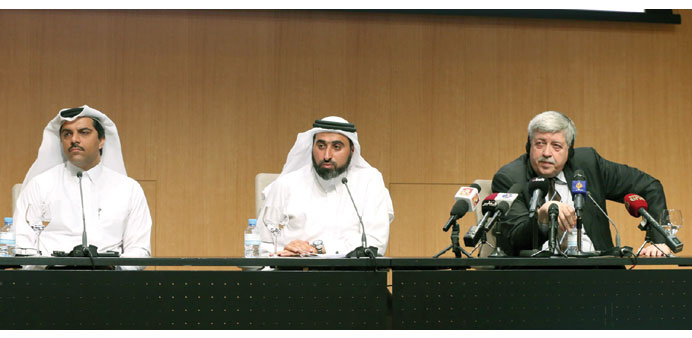By Joey Aguilar
Staff Reporter
Some 124 students representing 35 nationalities will converge at the first-ever Doha Youth Forum on Crime Prevention and Criminal Justice, which begins at the Qatar National Convention Centre tomorrow.
“The three-day event provides a platform for the youth to express their ideas and views on student issues in the region as well as challenges faced by communities in fighting and preventing crime,” Jassim Telefat, the group executive director of Qatar Foundation (QF) Capital Projects and Facilities Management, said yesterday.
“A golden opportunity will be in the hands of our youth to show us their potential, creativity and raise their voices at the highest international arena in the final declaration and recommendation in the Congress,” he explained.
The forum, considered as the first-of-its-kind in the Middle East, precedes the 13th United Nations Congress on Crime Prevention and Criminal Justice scheduled to be held in Doha from April 12 to 19.
Besides familiarising students with the role and functions of the United Nations, the forum will engage them in various discussions on criminal justice and how to prevent crime through concrete and practical solutions.
Hamad Bin Khalifa University dean assistant for student affairs Dr Khalid al-Khanji said they had received more than 185 applications, mostly from universities and colleges in Qatar, as well as applications from secondary school students.
He pointed out that they had applied some standards in selecting the students based on their background and experience, cultural abilities and interest. Many came from higher education institutions and outstanding students from secondary schools.
Initiated by the Qatar Foundation for Education, Science and Community Development, in collaboration with the organising committee, the forum will see youth delegates of different nationalities such as Qatar, India, Pakistan, Egypt, Sudan and Jordan (top six) tackling three of the most relevant topics the Congress will deal with.
“One has to do with the rule of law and the role of criminal justice institutions in supporting the rule of law,” said Dimitri Vlassis, chief of Corruption and Economic Crime Branch at the UN Office on Drugs
and Crime, at the press conference.
Participants will role-play the 13th United Nations Congress on Crime Prevention and Criminal Justice as part of the forum to discuss the three designated themes.
The first theme addresses successes and challenges in implementing comprehensive crime prevention, criminal justice policies and strategies to promote the rule of law at national and international level, and support sustainable development.
The second theme questions national approaches to public participation in strengthening crime prevention and criminal justice.
The final theme will engage the students on their responses to evolving forms of crime such as cybercrime and trafficking in cultural property, including lessons learned and international cooperation.
After the deliberation, participants will discuss and formulate their vision for the future based on the topics they have selected.
“They will be communicating with the broadest possible range of constituencies in the area of crime prevention and criminal justice from decision makers, ministers, deputy minister, heads of departments, representatives of all the institutions that comprise the criminal justice system from prevention through law enforcement, judiciary, to corrections and rehabilitation,” Vlassis said.
He also announced that Japan had offered to host the next congress in 2020.
A large delegation of Japanese will be coming not only to participate in the deliberation of the Congress but also try to learn from Qatar in organising the event. Page 28

Dr al-Khanji, Telefat and Vlassis speak yesterday about the Doha Youth Forum on Crime Prevention and Criminal Justice. PICTURE: Jayan Orma
